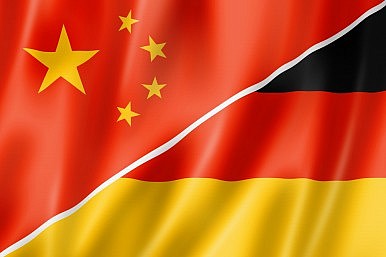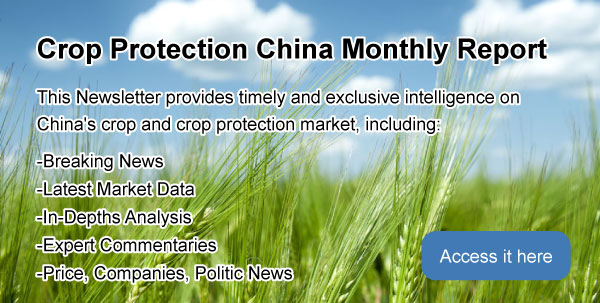Looking at the
environmental damage and consumer awareness, bio-pesticides are favoured in
Germany over conventional pesticides. According to market intelligence firm
CCM, Europe has become the second largest market for bio-pesticides, opening
good investment opportunities.

CCM previously
reported that Germany may ban glyphosate. Data show that in the past 27
years insects have declined by more than 75% in the country due to overuse of
herbicides and insecticides. Besides glyphosate, Germany also plans to set
restrictions on other chemical pesticides.
The
European Union had voted to relicense the controversial herbicide glyphosate,
marketed as Roundup by agrochemical giant Monsanto, for another five years.
Germany was actually a key nation to swing the vote in November 2017 extending
its use across the European Union.
The
ban of glyphosate usage, among GMO crops, in Germany, was one of the terms
agreed by the leading German parties recently. After the controversial renewal
of the famous weed killer's EU approval, its usage will be limited in Germany.
However, the time frame for the phase-down is not specified yet. Hence, there
is no official set date for an end to using the controversial herbicide
glyphosate in Germany.
Currently,
Germany decides to set more restrictions on farmers' using chemical pesticides
so as to protect biodiversity. Governmental officials said that farmland
proportion should be increased, as well as restrictions on the use of
fertilisers should be increased. What's more, subsidies should be provided for
using chemicals that are safe for insects. The minister of the German
Agriculture Ministry formulated the plan to end the use of glyphosate, which
made it harder to obtain a license to use agricultural chemicals.
CCM
believes that Germany's attitude towards chemical pesticides is similar to the
EU's general trend. They restrict the use of chemical pesticides not only
because of its toxicity to human beings but also to insects and agricultural
biodiversity. Bio-pesticides are more favoured by EU countries. It is known
that Germany also supports the EU's plan to ban neonicotinoid insecticides as
they were proved to hurt bees.
All
the signs indicate that traditional chemical pesticides are increasingly
unpopular in Europe, whilst bio-pesticides have become ideal substitutes.
Europe is the second largest market for pesticides. In 2016, Europe took up
about 25% of bio-pesticide market shares in the world, with market value
reaching USD1 billion. It is predicted that the CAGR will be 16% in 2017–2022.
Among which Spain ranks 1st, followed by Italy and France.
Although
chemical synthetic products dominate the global pesticide market,
bio-pesticides will take more than 7% of market shares in 2022, vs. 5% in 2016.

What are biopesticides
Biopesticides
are the short form of biological pesticides" Their global usage and
registration are diverse. They are mainly used as insecticides, fungicides,
herbicides, nematicides or growth regulators for plants and animals. In
addition, they can be used as biostimulants and biological fertilizers.
Biopesticides
can be classified according to their origin. Microbials are based on products
of microorganisms such as bacteria, fungi, viruses or
viroids. Macrobials come from macroorganisms. Biochemicals consist
of pheromones and similar chemicals, such as hormones, minerals or enzymes.
Although
biopesticides are used globally, the regulations and registration authorities
differ at a regional or national level. In Europe, biopesticides are treated at
registration as agrochemicals or as biocides.